- Home
- Knowledge Base
- cPanel
- Files
- Understanding File Locations in Your cPanel Account
Understanding File Locations in Your cPanel Account
Overview
Knowing the structure and purpose of directories in your cPanel account is essential for effective website management. This guide outlines the common directories and their uses.
Key Directories
- public_html: The main folder for your website’s files, accessible to the public.
- home: The top-level directory for your account, storing all user data.
- etc: Contains configuration files for your domains.
- mail: Holds email-related data for your domains.
In-depth Guide
Detailed Exploration of cPanel Account File Locations
Introduction to cPanel Directory Structure
Each cPanel account comes with a standardized directory structure that helps you organize and manage your web hosting environment effectively. Understanding what each directory is intended for can significantly enhance your ability to manage your website.
Comprehensive Directory Breakdown
| Directory | Purpose | Access Tips |
|---|---|---|
public_html | Contains all the files that are accessible via the web. This is the root directory for your site. | Use for uploading website files like HTML and images. |
home | Your account’s home directory, storing all user-specific files. | Primary location for user files, not web accessible. |
etc | Houses configuration files especially for email settings. | Modify with caution; essential for account settings. |
mail | Stores all email related data and folders for your domain. | Access through cPanel’s Email accounts section. |
tmp | Temporary files and session data are stored here. | Cleared periodically; not for permanent storage. |
public_ftp | Used for storing files available through FTP but not necessarily via the web. | Ideal for files that require FTP access but not web visibility. |
logs | Logs and statistics about your website’s access and errors. | Review regularly for website monitoring. |
ssl | Stores secure certificates and related files. | Essential for managing website security settings. |
The Home Directory
Your home directory (/home/username) is the root directory for your user account, where all files and subdirectories associated with your account are stored. It includes several critical subdirectories:
- public_html: This is the most important directory for web hosting users, as it contains all the files that are publicly accessible over the internet. For example, your website’s index file (index.html or index.php) resides here.
- www: This directory is a symbolic link (similar to a shortcut) to
public_html, meaning both point to the same location and serve the same function. - mail: Stores all emails associated with your cPanel account. Each domain and email account will have its own subdirectory within
mail. - etc: Contains configuration files for your email and other domain-specific settings. This directory is not for modification without a clear understanding of its impact.
Other Important Directories
- tmp: Used to store temporary files. Useful for sessions or caching in web applications.
- logs: Contains your access and error logs. These files are crucial for monitoring the traffic to your site and troubleshooting issues.
- public_ftp: If FTP access is enabled, this directory holds files that are accessible via anonymous FTP.
- ssl: Stores certificates, keys, and other files related to SSL encryption. Essential for securing your website if you handle sensitive data.
Best Practices for Managing Your File Structure
To maintain an organized cPanel account:
- Keep your
public_htmlclean and well-organized, as it directly affects your website’s load time and SEO. - Regularly check your
logsdirectory to monitor site performance and security issues. - Manage the
maildirectory efficiently to prevent it from consuming too much space, which can impact your account’s performance.
Understanding these directories and their functions allows you to better manage your hosting environment, leading to a more secure and efficient operation of your website hosted on SmartHost. For more detailed technical assistance, SmartHost’s support team is always ready to help.
FAQs About File Locations in Your cPanel Account
public_html directory for? The public_html directory is the web root for your website. It is where you should place all files that you want to be publicly accessible through your website. This includes HTML, CSS, JavaScript files, and media content like images and videos.
Yes, you can store private files in your cPanel account. For files that should not be accessible to the public, you can place them outside the public_html directory. You might use directories such as private or other specially named directories within the home directory to store sensitive data securely.
www directory? The www directory is a symbolic link to public_html. This means that it points to the same location and serves the same purpose as public_html. It is included for compatibility and convenience, allowing for two different paths that lead to the same files.
Email files are stored in the mail directory within your home directory. Each domain on your cPanel account has its own folder within mail, and each email account has a corresponding subfolder where emails are stored. These are not typically accessed directly unless for backups or advanced management tasks.
etc directory? The etc directory contains configuration files related to your hosted domains and email configurations. It is crucial not to modify the contents of this directory unless you are familiar with their functions and the potential impact of changes, as incorrect settings can disrupt domain or email functionality.
Logs are stored in the logs directory. This directory contains access logs that detail every request made to your website, as well as error logs that help diagnose issues with the website. Regularly reviewing these logs can help you understand traffic patterns and identify any errors affecting your site.
Related Articles
- Uploading Files to Your SmartHost Hosting Account
- Locations and Descriptions of cPanel and WHM Log Files
- JetBackup – Secure, Reliable backups from SmartHost
- Guide to the cPanel Backup Wizard from SmartHost
- Understanding the cPanel Backup Feature from SmartHost
- Understanding the cPanel FTP Accounts Feature







